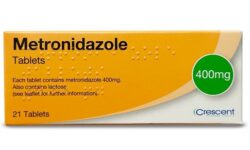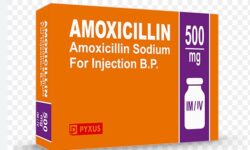Health Benefits of Grape Seeds
Grape seeds are often overlooked when it comes to reaping the benefits of this delicious fruit. However, recent studies have shed light on the incredible antioxidant properties of grape seeds, making them a potential ally in promoting overall health. Not only do these tiny seeds possess potential anti-inflammatory effects, but they have also been linked to cardiovascular benefits. Additionally, grape seeds have shown promising effects when it comes to enhancing skin health. So, let’s delve into the world of grape seeds and discover the wonders they hold for our well-being.
Antioxidant Properties Of Grape Seeds
The antioxidant properties of grape seeds have been widely studied and recognized for their numerous health benefits. Grape seeds are rich in powerful antioxidants such as proanthocyanidins, resveratrol, and flavonoids, which help to neutralize harmful free radicals in the body.
These antioxidants play a crucial role in preventing oxidative stress and damage to cells and tissues. They help to slow down the aging process, protect against chronic diseases, and support overall health and well-being.
Studies have shown that the antioxidants in grape seeds can help to reduce the risk of various health conditions, including heart disease, cancer, and neurodegenerative disorders. They have been found to improve cardiovascular health by reducing inflammation, lowering cholesterol levels, and promoting healthy blood pressure.
The high concentration of antioxidants in grape seeds makes them a valuable ingredient in skincare products. These antioxidants help to protect the skin from environmental damage, reduce the appearance of wrinkles and fine lines, and promote a more youthful and radiant complexion.
| Health Benefits of Grape Seeds: | |
|---|---|
| 1. Antioxidant properties | Grape seeds are rich in powerful antioxidants that help neutralize free radicals and prevent oxidative stress. |
| 2. Cardiovascular benefits | The antioxidants in grape seeds can improve heart health by reducing inflammation and promoting healthy blood pressure. |
| 3. Potential anti-inflammatory effects | Research suggests that grape seeds may possess anti-inflammatory properties, which can help reduce inflammation in the body. |
In conclusion, grape seeds are a natural source of antioxidants that offer numerous health benefits. Incorporating grape seeds into your diet or using grape seed extract as a supplement can help protect against oxidative stress, support cardiovascular health, and promote healthy skin. Including grape seeds in your daily routine can be a valuable addition to maintaining overall well-being.
Potential Anti-Inflammatory Effects Of Grape Seeds
Grape seeds, often overlooked as a byproduct of winemaking, actually possess numerous health benefits. One of the potential benefits of grape seeds is their anti-inflammatory effects. Inflammation is the body’s natural response to injury or infection, but chronic inflammation can contribute to various diseases such as arthritis, heart disease, and diabetes. The compounds found in grape seeds, such as proanthocyanidins, have been shown to have anti-inflammatory properties.
Research studies have demonstrated that the proanthocyanidins in grape seeds can inhibit the production of inflammatory molecules in the body. These molecules, called cytokines, play a key role in the inflammatory response. By reducing the levels of cytokines, grape seed extract may help alleviate inflammation and its associated symptoms.
Grape seed extract has also been found to modulate the activity of certain enzymes involved in inflammation. For example, it can inhibit the activity of cyclooxygenase-2 (COX-2), an enzyme responsible for producing inflammatory compounds called prostaglandins. By blocking the action of COX-2, grape seed extract may prevent excessive inflammation.
| Health Benefits of Grape Seeds |
|---|
| Grape seed extract may have potential anti-inflammatory effects due to its ability to inhibit the production of inflammatory molecules and modulate the activity of enzymes involved in inflammation. |
| These effects may be attributed to the presence of proanthocyanidins and antioxidant compounds in grape seeds. |
| Moreover, grape seed extract has been found to improve blood circulation and strengthen blood vessels, indirectly contributing to reduced inflammation. |
Cardiovascular Benefits Of Grape Seed Extract
The cardiovascular benefits of grape seed extract have gained attention in recent years, as research suggests that this natural supplement may have positive effects on heart health. Grape seeds are rich in antioxidants, which help to protect the cells in our bodies from damage caused by harmful molecules called free radicals. These antioxidants, including proanthocyanidins, resveratrol, and flavonoids, have been shown to reduce inflammation, improve blood flow, and lower blood pressure, all of which contribute to a healthy cardiovascular system.
One of the key benefits of grape seed extract is its ability to reduce oxidative stress in the body. Oxidative stress occurs when free radicals outnumber the antioxidants in our system, leading to damage to our cells and DNA. By providing an abundant source of antioxidants, grape seed extract can help to neutralize free radicals and prevent oxidative stress. This is particularly important for the cardiovascular system, as oxidative stress is a major risk factor for heart disease and other cardiovascular disorders.
In addition to its antioxidant properties, grape seed extract has also been found to have anti-inflammatory effects. Chronic inflammation is believed to play a role in the development and progression of cardiovascular diseases, such as atherosclerosis. Studies have shown that grape seed extract can reduce markers of inflammation in the body, including C-reactive protein and interleukin-6. By decreasing inflammation, grape seed extract may help to improve the health of blood vessels and reduce the risk of heart disease.
| Health Benefits of Grape Seed Extract: | |
|---|---|
| 1. Lowering blood pressure: | Grape seed extract has been shown to help lower blood pressure levels, which is a key factor in maintaining cardiovascular health. |
| 2. Improving blood flow: | By enhancing blood flow, grape seed extract may improve the delivery of oxygen and nutrients to the heart and other organs. |
| 3. Supporting healthy cholesterol levels: | Research suggests that grape seed extract may help to lower LDL cholesterol levels, known as “bad” cholesterol, while increasing levels of HDL cholesterol, known as “good” cholesterol. |
| 4. Protecting the blood vessels: | Grape seed extract has been found to strengthen and protect blood vessels, reducing the risk of cardiovascular diseases like atherosclerosis. |
| 5. Preventing blood clot formation: | Studies have shown that grape seed extract can help to inhibit the formation of blood clots, which can cause heart attacks and strokes. |
In conclusion, grape seed extract has a range of cardiovascular benefits. Its antioxidant and anti-inflammatory properties help to protect the cardiovascular system from oxidative stress and reduce inflammation, both of which are key contributors to heart disease. Additionally, grape seed extract may lower blood pressure, improve blood flow, support healthy cholesterol levels, protect blood vessels, and prevent blood clot formation. Including grape seed extract as part of a healthy lifestyle and balanced diet may help support overall cardiovascular health.
Grape Seeds And Skin Health
Grape seeds are often overlooked as a valuable source of health benefits. They are rich in antioxidants, which can help protect our cells from damage caused by free radicals. These antioxidants are particularly beneficial for our skin health, as they can help reduce the signs of aging and promote a healthy complexion.
Antioxidant Properties Of Grape Seeds: Grape seeds contain a high concentration of antioxidants, including proanthocyanidins, resveratrol, and flavonoids. These compounds can help neutralize free radicals in the body, which can lead to oxidative stress and damage to our cells. By consuming grape seeds or using grape seed oil topically, we can benefit from their antioxidant properties and protect our skin from premature aging and other skin conditions.
Potential Anti-Inflammatory Effects Of Grape Seeds: In addition to their antioxidant properties, grape seeds may also have anti-inflammatory effects. Inflammation is a natural response by our immune system to protect us from infection or injury. However, chronic inflammation can contribute to various skin conditions, such as acne, eczema, and psoriasis. The anti-inflammatory properties of grape seeds can help reduce inflammation in the skin and alleviate symptoms associated with these conditions.
Cardiovascular Benefits Of Grape Seed Extract: Grape seed extract, which is derived from grape seeds, has been studied for its potential cardiovascular benefits. It has been found to improve blood flow, reduce cholesterol levels, and lower blood pressure. By promoting a healthy cardiovascular system, grape seed extract can indirectly benefit our skin health. Improved blood flow can enhance the delivery of nutrients and oxygen to our skin, promoting a healthy and radiant complexion.
Grape Seeds And Skin Health: When it comes to skin health, grape seeds can offer a range of benefits. Their antioxidant properties help protect our skin from free radical damage, reducing the signs of aging such as wrinkles and fine lines. The anti-inflammatory effects of grape seeds can help soothe irritated skin and alleviate conditions like acne and eczema. Additionally, the cardiovascular benefits of grape seed extract indirectly contribute to a healthy complexion by improving blood flow and nutrient delivery to the skin.
Incorporating grape seeds into our diet is relatively easy. We can snack on whole grapes and include them in our salads or smoothies. Grape seed oil is also available for cooking or as a topical application. Before using grape seed extract or oil, it is always recommended to consult with a healthcare professional, especially if you have any underlying medical conditions or are taking medications. With regular consumption or use, grape seeds can improve our skin health and contribute to a youthful and vibrant appearance.
Frequently Asked Questions
Question 1: What are the antioxidant properties of grape seeds?
Grape seeds are rich in antioxidants such as proanthocyanidins, flavonoids, and phenolic acids, which help neutralize harmful free radicals in the body and reduce oxidative stress.
Question 2: Can grape seeds have potential anti-inflammatory effects?
Yes, grape seeds contain compounds that possess anti-inflammatory properties. They may help reduce inflammation in the body and alleviate symptoms of inflammatory conditions.
Question 3: What cardiovascular benefits does grape seed extract offer?
Grape seed extract has been found to have cardiovascular benefits. It can help improve circulation, support healthy blood pressure levels, and reduce the risk of heart disease.
Question 4: How do grape seeds contribute to skin health?
Grape seeds contain antioxidants and vitamins that promote healthy skin. They can help protect the skin from damage caused by free radicals, reduce signs of aging, and improve overall skin texture.
Question 5: What specific antioxidants are present in grape seeds?
Grape seeds are particularly rich in proanthocyanidins, which are potent antioxidants known for their ability to protect cells from oxidative damage.
Question 6: Are there any potential side effects of consuming grape seed extract?
While grape seed extract is generally safe for most people, some individuals may experience mild gastrointestinal symptoms or allergic reactions. It is always advisable to consult a healthcare professional before starting any new supplement.
Question 7: How can grape seed extract be incorporated into daily life?
Grape seed extract is available in various forms, including capsules, powders, and oils. It can be easily incorporated into daily life by adding it to smoothies, using it as a cooking oil, or taking it as a dietary supplement as recommended by healthcare professionals.



